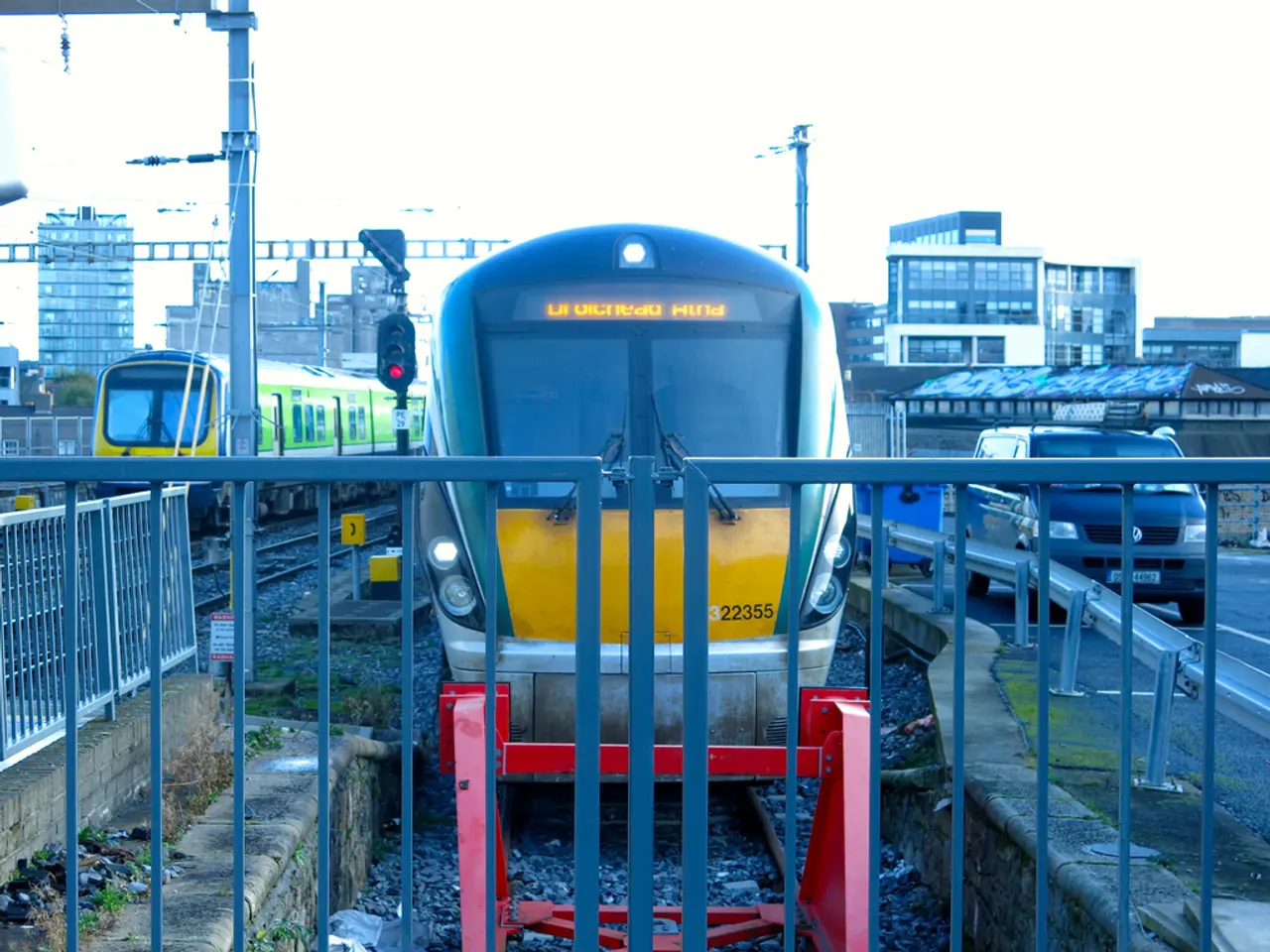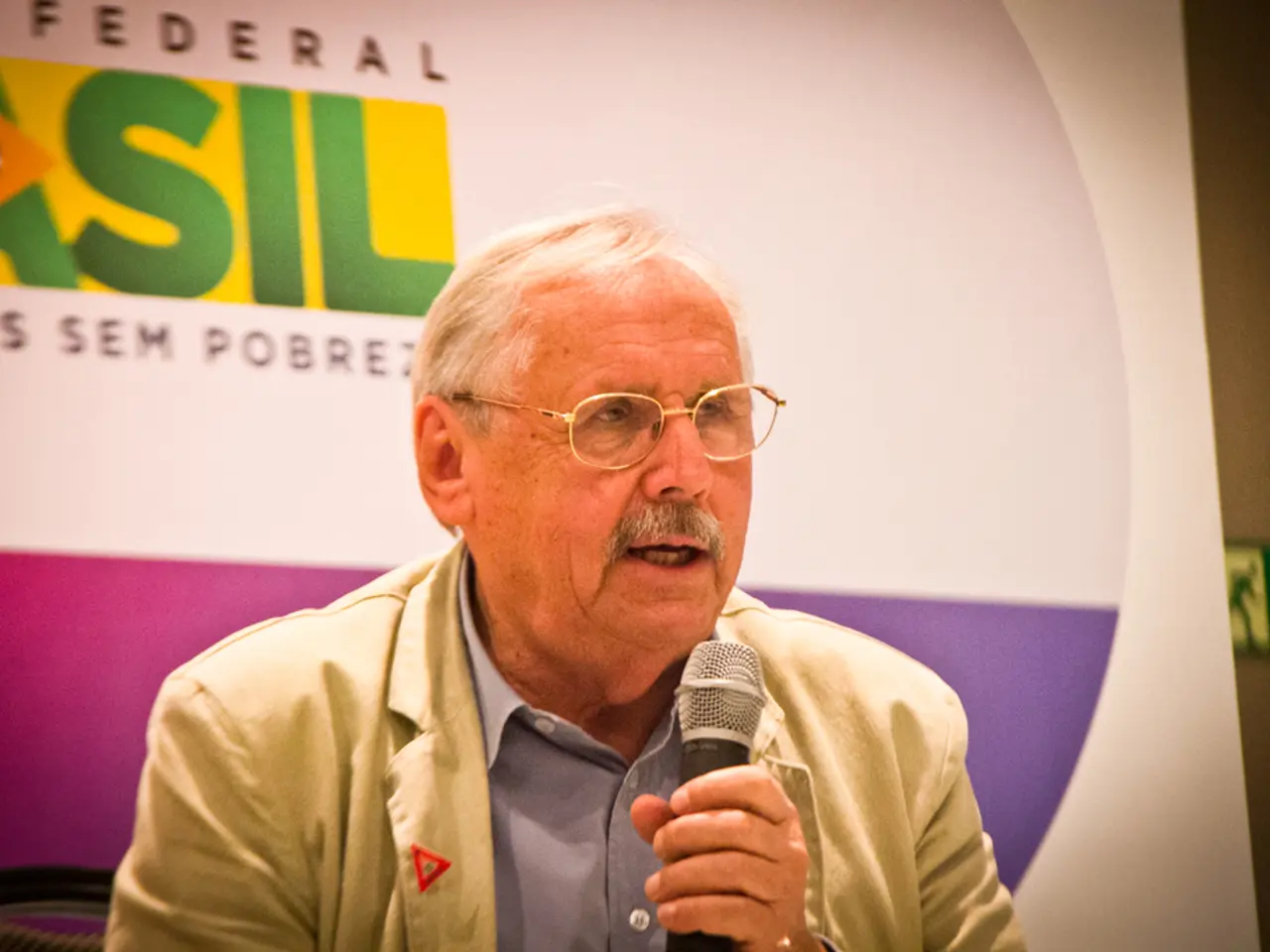Exploring the lesser-traveled routes
In the heart of Europe, the German railway network is undergoing a significant transformation, with the focus on maintaining service continuity and modernising the infrastructure. However, the question of how best to approach this rehabilitation remains a topic of debate.
The main arguments for a step-by-step rehabilitation, with trains running throughout the process, centre around minimising disruption and maintaining service continuity. This approach benefits passengers and freight customers by avoiding complete shutdowns that can severely impact mobility and economic activity. Innovative methods such as excavation-free trackbed stabilisation and the use of advanced technology, including AI for inspection, can speed up repairs and reduce the environmental and operational impact, making staged rehabilitation more feasible and efficient.
On the other hand, the full closure approach, which involves closing sections entirely for more comprehensive and faster rehabilitation work, comes with its own set of challenges. While this method can shorten overall project duration and potentially improve safety during construction, it causes complete service interruptions. This demands expensive and complex contingency plans for rerouting or alternative transport and can inconvenience travelers greatly.
German railway reforms acknowledge these trade-offs, with ongoing efforts to improve infrastructure while maintaining operations. Increased investment and operational streamlining are being implemented to balance reliability and modernization priorities. Technological advances in inspection and trackbed rehabilitation support making stepwise rehabilitation with ongoing traffic more practical and sustainable.
However, the punctuality issues of the DB remain unresolved, with the punctuality of the DB not significantly improving in the first half of 2025. Moreover, at least 17 billion euros are missing for the rehabilitation of the entire railway network until the year 2029. Critics believe that the necessary expansion and new construction of the network will not progress due to these financial constraints.
Furthermore, a split of the DB, a topic in politics due to its problems, could exacerbate these issues. Some argue that a split will not bring us closer to a railway company oriented towards the common good in all business areas. Long-term financing for the railway infrastructure is not yet secured, adding another layer of complexity to the rehabilitation process.
The daily newsletter nd.Kompakt provides a summary of the most exciting news stories from the editorial team, keeping readers informed about the latest developments in the rehabilitation of Germany's railway network. As the process continues, it will be interesting to see which approach will prevail and how it will impact the future of Germany's railway system.
- Discussions about the rehabilitation of Germany's railway network often touch upon the topic of sports, as the approach adopted can be seen as a strategic play, with the step-by-step method focusing on minimizing disruptions, much akin to a game plan in sports.
- Innovative techniques, such as the use of AI for inspection and excavation-free trackbed stabilization, are being employed in the railway rehabilitation process, which is comparable to the integration of technology in sports, aimed at enhancing efficiency and reducing environmental impact.








